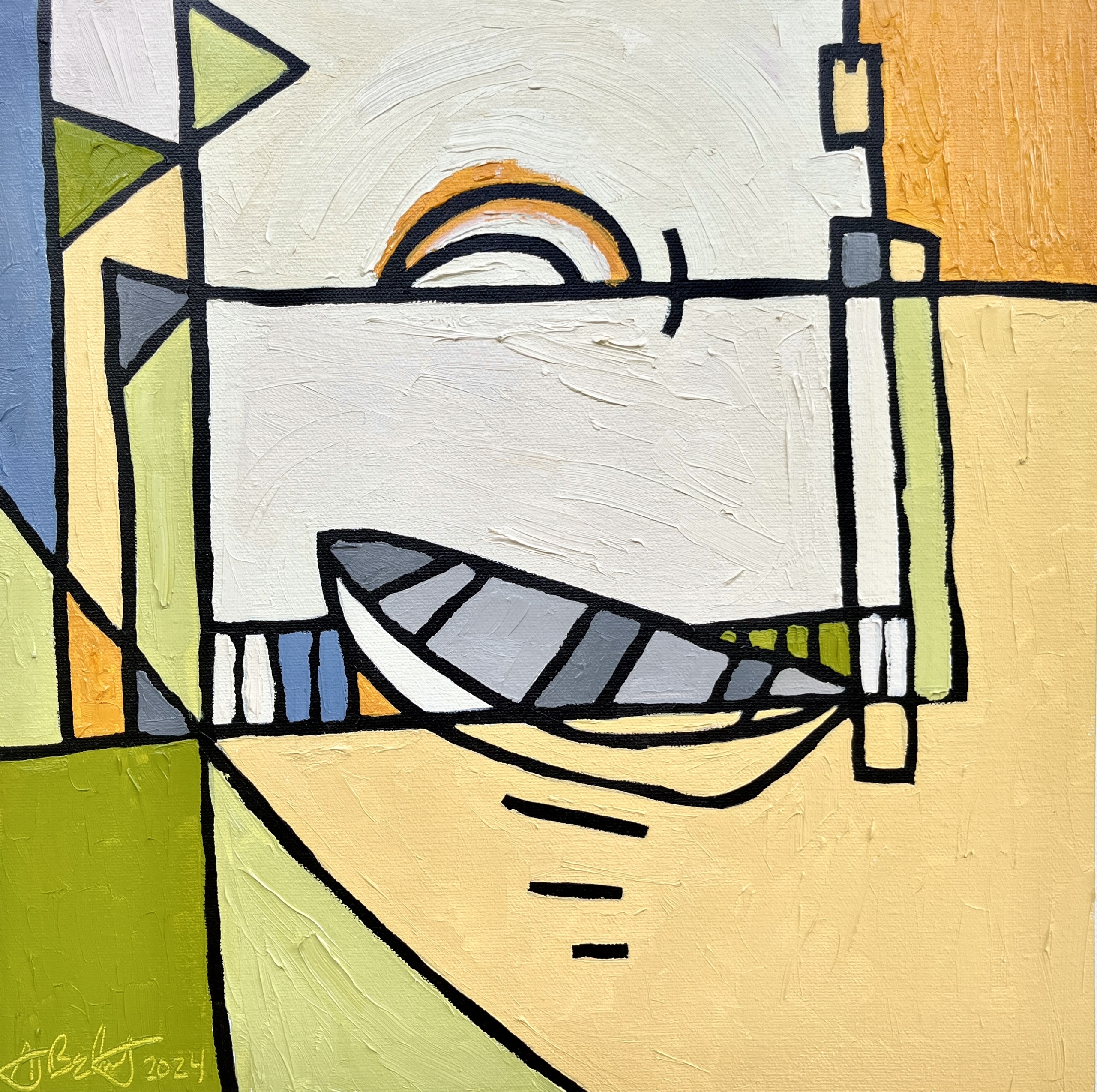Song for the First-Person Anthropocene
It will be simple, I think,
to die. The gut a slapped peach
releasing its juices in slow
deluge, the brain a roadside
fireworks stand discharging
its inventory of color-soaked
shrieks upon the smoky July
dawn. Like childbirth,
the animal body knows how
to widen its hips & rear
eternity—though story clings,
a kernel of pain sharp behind
the cervix. A student speaks
of seven minutes beyond stillness,
an end-game recap & credit
reel, & another of statistics
tallied on a neon board;
as if belief owes us runes
revealed in the stars, erasure
refitting the night with so much
sky. The shored minnow is a cosmos
in himself, his desperate flail & gasp
a terrier’s plaything as visions
of his home reef & scaled cousins trail
the shadow of his gored, limp tail.
I am as wed to the narrative
of my life as anyone, or more,
but to unsorrow the shucking
of flesh from soul I do not, on this
sliver of October beach, need
to recall other shores, or hands
that traveled space to unempty mine,
or any philosophy of heat & time,
or the light-struck trinket of legacy,
or that the most beautiful sand-
kissed body walks alongside my own
toward the fate of store-bought
lettuce: a bouquet of rippled green
labia rusted to ooze against a thin
membrane of polyethylene. The alarm
of our lives only a sunburn that seeps
& flames & fades & peels. My own
name, my own beloved’s names
as distant then to me as the landfill
grave that collects unrecycled water
bottles from my careless college
years. The final mechanical hum
shoved through our lips must be
a whisper inward to the dinosaur
cell who wished itself a zygote;
meanwhile each alive & living day sings
into the wound that will not mourn
us & which we have already forgotten.
All morning I pace outside my body, knitting
the spaghetti labyrinth of my mind
with the ugliest fables & fortunes,
painting Time a cruel toothless
oracle, & do not register that it is one
step followed by another that brings
me to the tributary, stilted pastel cottages,
the roar of the ocean so ignored it may
as well be my own sustaining breath.
I look down at my individual, specific,
human & only feet held under me
& think It will be simple.

The Killing of a Snakebird
I tire of my own mythology. I wake up alive
past the end credits, unsure what story
I’m in. I continue to wake, to walk
my spaniel along the paved pond, berated
by relentless sunlight, thinking if it is a curse
to stretch a life beyond its ration of goodness,
see our hearts render with awful ease an indifference
to atrocity and amazement, it is another to stumble
upon, then live beyond, your story’s crescendo. December,
his arm a shelter, all creation blue and deathless. An anhinga
flashed its wings from shore. The future was a knife’s hilt
plunged in the ground ahead, silver as the lake and nothing
to do with us. In the old life, I had and held that
fragile world called now. A word sprung to my lips
when asked to identify my home. I belonged
to trees, myself, and others. In this pink new purgatory
days spend up along the sun-bleached strand,
geese in the graveyards, a plastic coyote
pinned on the hill. These are the places one is led
by a dead dad, or an unexplained lust for gingko;
for anything touched only once. When people ask
if I’m married, I’m tempted to tell them
I’m wedded to my delusions, which is a lie
only in the legal sense. On a day like any
other, a snakebird from that old world arrives, dragging
its beak through the too-green water. Anhinga! I holler
from shore. Snakebird! Show who you are! But its wings,
delicate dinosaur with otter’s fur, refuse to unfurl. One eye
on the talisman of its elegant brown neck, I circle
the pond pines, fantasizing vampires. I once needed
to believe in a magic called tenderness; now
I seek confirmation that brutality, too, exists
in glittering awe. Though I know fangs
are found in anything—ignore the proof
in my little dog, laid gently at my feet,
gnawing the limp corpse of a lizard. At least admit
to your own voice what you can’t
in your own voice: Burn the old field
and its kudzu ache behind you! How we learn to love
destroying the reverent artifacts of our hunger!
Erin Slaughter: Having lived in various parts of the South throughout my life, my work is often inspired by my emotional relationship to these particular and unique landscapes; currently, I live on the South Carolina Grand Strand, and the poems in this submission sprung from coastal marshlands and their natural inhabitants, particularly the figure of the anhinga as a surrogate for the speaker-self. I’m a multi-genre writer who has published two collections of poetry and a book of short stories, and after a long hiatus of writing prose, I’ve been excited to return to writing poems. Online: erin-slaughter.com, Instagram @erin_slaughter23.
